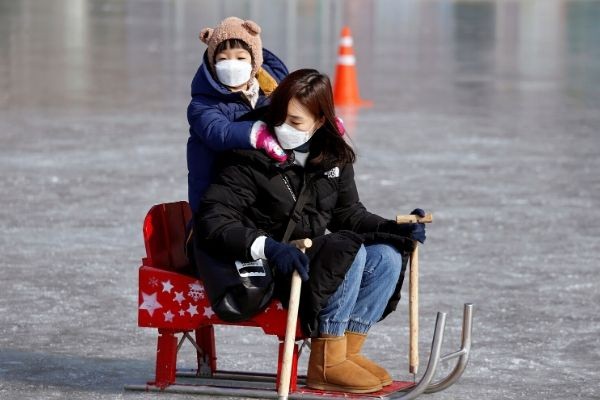
Scientists are still investigating why children are not as severely affected by the coronavirus like adults. Of the 24,000 infected by the contagion and almost 500 dead due to lack of supplies, most of them are adults.
Coronavirus was first detected on December 31 wherein only children older than 15 were infected. One study in the New England Journal of Medicine suggested that younger children have fewer chances of infection, or have less severe symptoms than adults.
One case is a 9-month old girl from Beijing, another child who was infected by the father, and one more child in Shenzhen, all of them were infected but showed no symptoms. An infant in Wuhan was found to be positive for the infection after the mother gave birth.
All indicators show that children are not susceptible to the coronavirus, from the instances of the recorded children infected.
Data from hospitals may not be conclusive unless it comes from a pediatric hospital. One reason why kids are not a high count is the habit of washing hands, and their mouths, not to mention limited interaction with anyone other than their family. This could be the reason why it is less prevalent in children.
Coronavirus is the same as SARS that took 774 lives and infected 8000 from November 2002 to September 2003. Records show that few children were infected by SARS wherein about 80 were positive, and 55 were only probable cases of infection.
These children had a fever with coughs and vomiting as symptoms exhibited. Likely symptoms of coronavirus are pneumonia, flu, fever, coughs, headache, hard breathing, and sore throat.
A 2007 summary by the Centers for Disease Control and Prevention concluded that children from 12 years or less had mild symptoms of SARS. There was no child or adolescents who perished from complications. Only one time did any child infected another individual too.
Several probabilities to the reason why the coronavirus effects children differently than adults are:
- Children are exposed more compared to adults, outside the house.
- Maybe the virus has a different reaction in a child's system. Local interaction in the Wuhan seafood market is suspected to be where the virus infected human hosts. Children rarely go to these places, which is why adults got the brunt of the epidemic's start. If the virus-infected children, it would be much worse than now.
Children are more careful with handwashing, covering mouths when coughing, or staying somewhat confined when feeling sick. That most certainly helps minimize infections.
However, more infections in other countries involving children are increasing as well. There is still no conclusive proof that children will not be affected.
The coronavirus has not taken any children's life so far, as they are less exposed and might have a better anti-body to combat the disease. Compared to contracting coronavirus, kids less than five years old might get the influenza virus, pneumonia and possible kidney failure.
Related article: 40 Staff Members Infected With Coronavirus at Wuhan Hospital








